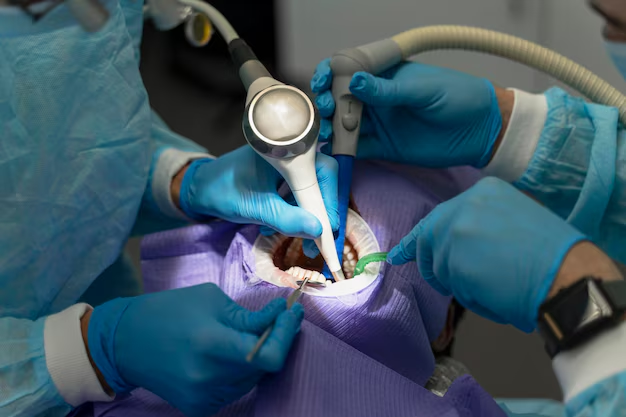Your Guide to Can Cataracts Come Back
What You Get:
Free Guide
Free, helpful information about Cataract FAQ and related Can Cataracts Come Back topics.
Helpful Information
Get clear and easy-to-understand details about Can Cataracts Come Back topics and resources.
Personalized Offers
Answer a few optional questions to receive offers or information related to Cataract FAQ. The survey is optional and not required to access your free guide.
Do Cataracts Return? Exploring the Possibilities and What You Need to Know
Cataracts are a common eye condition, especially as people age, leading to blurred vision and the need for corrective surgery. After undergoing cataract surgery, a question often arises among patients: "Can cataracts come back?" Let's delve into this topic to understand what happens during and after cataract surgery, why it’s improbable for true cataracts to return, and what other eye changes might mislead someone into believing their cataracts have returned.
Understanding Cataract Formation
Eyes are fascinating organs with a complex internal structure. One part, the eye’s lens, is clear and flexible, focusing light onto the retina. Cataracts occur when protein clumps within the lens, causing it to lose clarity and ultimately impair vision.
Types of Cataracts
Before diving into the potential recurrence of cataracts, it's essential to know the different types of cataracts:
- Nuclear Cataracts: These affect the center of the lens and are often linked with aging.
- Cortical Cataracts: These form in the lens’ periphery and gradually extend inward.
- Posterior Subcapsular Cataracts: Occurring at the lens back, near the retina, this type often develops quickly and can obstruct reading vision.
Each type has unique characteristics, yet the pivotal factor across all cases is the opacification of the lens leading to vision impairment.
Cataract Surgery: What Really Happens?
Cataract surgery is a common and effective procedure where the cloudy lens is replaced with a clear, artificial one. Known technically as phacoemulsification, this surgery restores clear vision by replacing the affected lens with an intraocular lens (IOL).
The Procedure
Here’s a simplified look at what happens during cataract surgery:
- Preparation: Eye drops numb the eye, and patients typically remain awake with mild sedative help.
- Lens Removal: The surgeon makes a tiny incision to remove the cloudy lens.
- Insertion of IOL: A synthetic lens is introduced, taking over the role of the old lens.
This procedure is usually quick, safe, and remarkably efficient in restoring vision.
Can Cataracts Really Return?
The straight answer is no, because the lens—where cataracts form—is removed during surgery and replaced with a synthetic one. The artificial lens cannot develop cataracts.
Misconception: The Secondary Cataract
Often, people mention their cataracts have returned, referencing a condition called posterior capsule opacification (PCO). While not a cataract resurgence, PCO involves the clouding of the membrane behind the IOL, leading to blurred vision.
Why Does PCO Occur?
PCO occurs when cells left behind post-surgery begin to grow over the back of the lens capsule, forming a film. This situation doesn’t involve the formation of new cataracts but mimics similar symptoms—hence the confusion.
Treating PCO
Fortunately, PCO is treatable with a simple, outpatient procedure called YAG laser capsulotomy. This non-invasive treatment clears the clouded area, restoring clear vision for most patients.
Maintaining Eye Health Post-Surgery
Keeping your eyes healthy after cataract surgery is crucial. Here are some tips to maintain optimal vision and avoid complications:
- Regular Checkups: Keep up with eye exams to monitor your overall eye health and detect any issues early.
- Protective Eyewear: Sunglasses with UV protection can shield your eyes from harmful sun rays.
- Balanced Diet: A diet rich in leafy greens, fruits, and omega-3 fatty acids supports eye health.
Other Potential Vision Changes to Consider
It’s important to recognize other conditions that can affect vision or develop concurrently with cataracts:
Glaucoma:
A condition involving increased eye pressure leading to optic nerve damage.
Age-related Macular Degeneration (AMD):
A deterioration of the central retina, affecting detailed vision.
As you can see, while cataracts cannot return, other eye issues may arise, emphasizing the need for continuous, attentive eye care.
Quick Summary: Key Takeaways on Cataracts and Eye Health 📝
- Cataracts Removal: Once removed, cataracts cannot return. The artificial lens is immune to cataracts.
- PCO Clarification: Posterior capsule opacification (PCO) may mimic cataracts but is different and treatable.
- Eye Health Maintenance: Protect your eyes from UV light, keep regular eye checkups, and ensure proper nutrition.
- Consider Other Conditions: Be mindful of other eye conditions like glaucoma or AMD that might affect vision post-surgery.
Final Insight
Understanding eye health, especially around cataract surgery, can help manage expectations and outcomes effectively. While cataracts themselves can’t recur, being informed about potential changes and maintaining regular eye care can significantly contribute to sustaining clear vision and eye wellbeing over the years. Embracing both proactive and regular health measures ensures your sight remains both capable and resilient.
What You Get:
Free Cataract FAQ Guide
Free, helpful information about Can Cataracts Come Back and related resources.

Helpful Information
Get clear, easy-to-understand details about Can Cataracts Come Back topics.

Optional Personalized Offers
Answer a few optional questions to see offers or information related to Cataract FAQ. Participation is not required to get your free guide.


